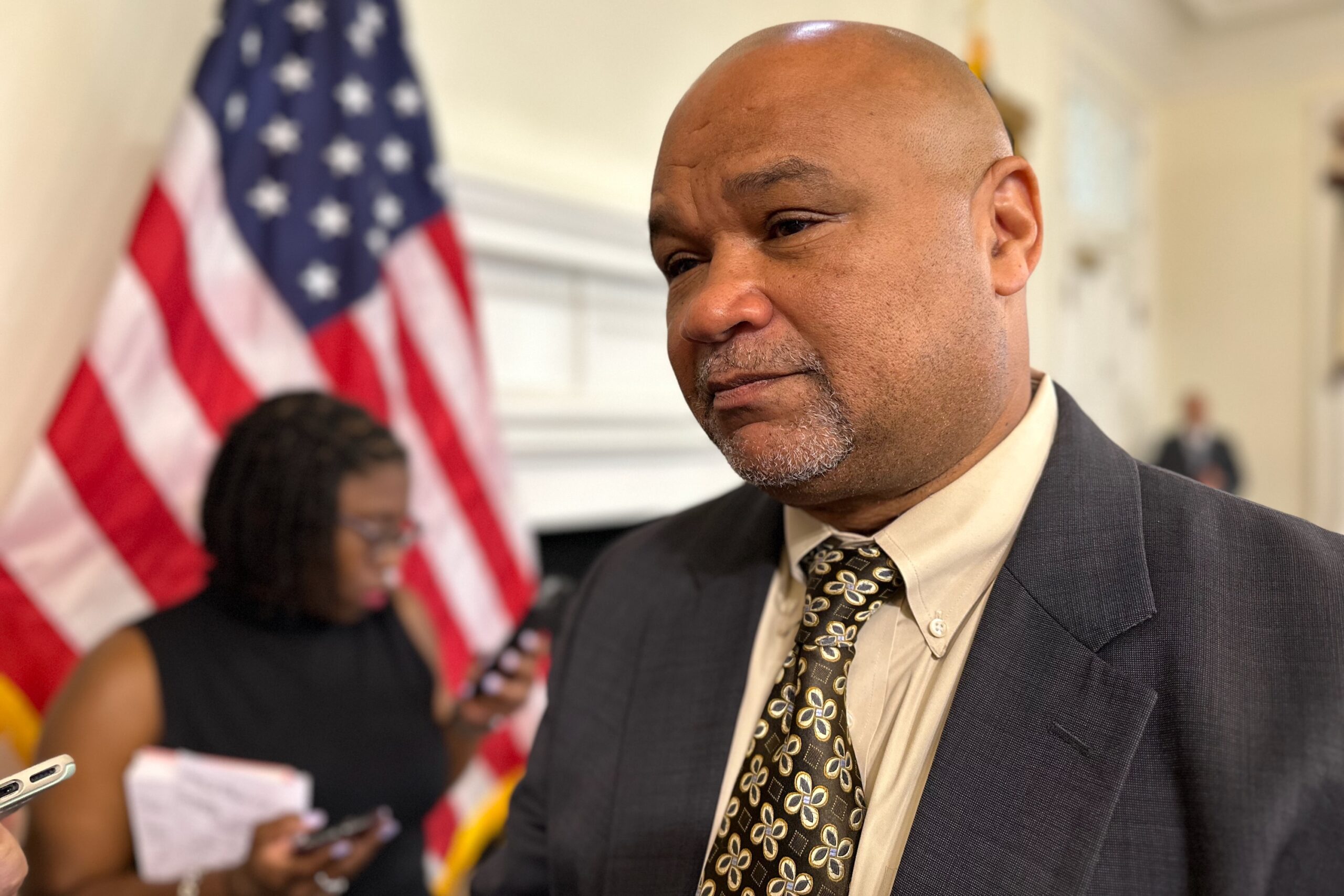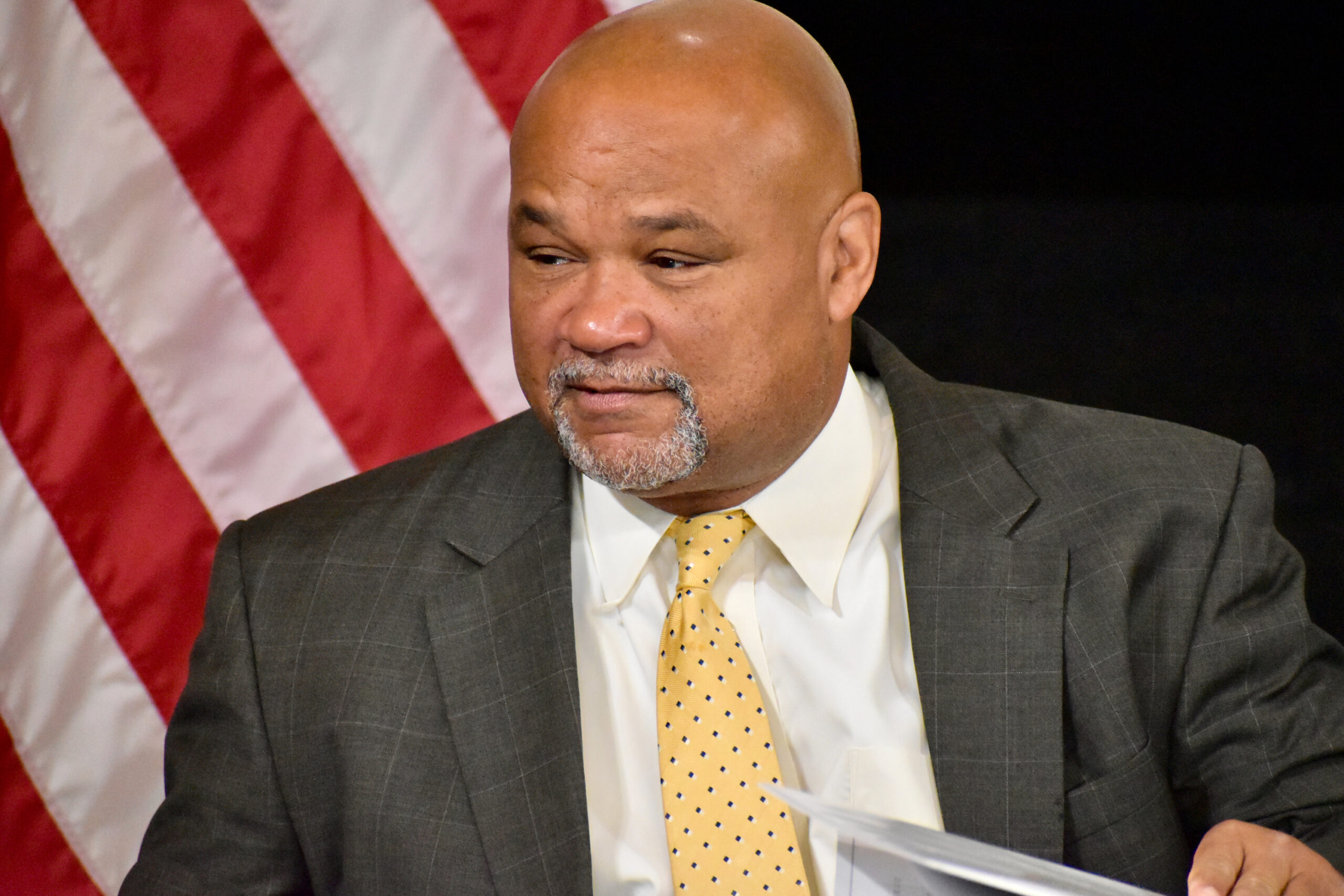During Debate Over $100M Contract, Franchot and Kopp Decry Continued Use of Emergency Contracts

Maryland’s top fiscal leaders sounded the alarm once again on Wednesday over state spending through emergency contracts that are exempt from the financial oversight and transparency generally required for large expenses.
This time, debate at the Board of Public Works centered on a $100 million emergency and partially retroactive contract for Qualivis, a San Diego-based company that has been providing clinical health care staff to Maryland COVID-19 testing sites, vaccination sites, inmate medical tents and nursing home survey teams.
The contract, which had already been signed by the Maryland Department of Health before it was presented to the board, included a $38 million retroactive payment for costs incurred in May and June. The contract also includes a $68 million extension through June 30, 2022.
Comptroller Peter V.R. Franchot (D) and Treasurer Nancy K. Kopp (D) have complained about state agencies’ copious use of emergency procurements during the pandemic. While emergency contracts may have been necessary at the height of the spread of COVID-19, they aren’t necessary any longer, the Democrats have said.
On Wednesday, Franchot sought to delay approval of the contract, which he noted has increased by more than 2,000% since the state first entered into an emergency agreement in April 2020 with Chesapeake Registry Program, Inc.
That company was recently purchased by Qualivis. With the $100 million contract extension presented Wednesday, the state has paid the companies $146.5 million.
It is one of many contracts that have been entered into by state agencies through more lax emergency procurement processes during the pandemic. The Baltimore Sun reported that the state has used emergency authority to spend nearly $1.5 billion on pandemic supplies and services.
On Wednesday, the Board of Public Works was presented with 17 retroactive contracts entered into by state agencies, leaving the panel with little option but to approve the spending.
“Each one of these 17 retroactive items represents a violation of the state’s procurement laws,” Franchot said at the start of the meeting. “I mean, seriously, how long are agencies going to operate as if there are no procurement laws and regulations in place?”
Lt. Gov. Boyd K. Rutherford (R), who has focused on modernizing and streamlining state procurement during his tenure at the State House, also voiced concern about the number of retroactive and emergency contracts on the agenda, at one point holding up his meeting binder to show red tags he’d attached to the edges of questionable agenda items.
Rutherford chaired the meeting in the absence of Gov. Lawrence J. Hogan Jr. (R).
Franchot said during Wednesday’s meeting that the board needed to push back more forcefully on retroactive contracts and extensions, “otherwise, we’re just an incumbent vendor protection program,” he said.
At one point during a half-hour debate over the Qualivis contract, it seemed like the item might be postponed, with the Department of Health required to come back with a new, bifurcated contract: an emergency procurement for the past-due amount and a new, standard contract for the prospective work.
But the health department has already executed a signed contract with the company, and even if the Board of Public Works delayed action, the department could make payments under the terms of the emergency contract without board approval.
Kopp and Rutherford ultimately voted to approve the contract, while Franchot refused in an effort to forestall more agreements like it in the future.
“I voted against this contract because this type of abuse simply must not stand,” Franchot said after the meeting. “The continuation of this abuse means agencies have pure autonomy to increase contract costs with little-to-no accountability or public oversight when they’re able to inappropriately classify contracts as an emergency.”
The debate grew pointed at times. When Franchot pressed Health Secretary Dennis R. Schrader about how the agency overspent the Qualivis contract by $38 million before seeking an update, Schrader responded that he was “more focused on saving lives at the time.”
The updated Qualivis contract was declared an emergency purchase on June 21, just days before Maryland’s officially declared state of emergency was set to expire July 1.
When Franchot asked why the new contract was still completed as an emergency procurement, Schrader responded: “The pandemic is still ongoing.”
“Oh, come on,” Franchot responded.
Kopp was also indignant.
“Stop using this device,” she pleaded with Schrader, noting how frequently she and Franchot have expressed displeasure with being forced to accept emergency contracts, some long after a 45-day reporting deadline. “And it is not a choice between reporting correctly or saving lives. We expect you to do both.”




 Creative Commons Attribution
Creative Commons Attribution